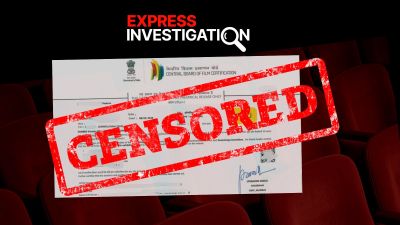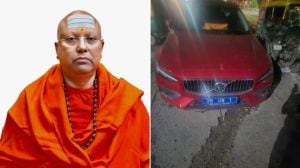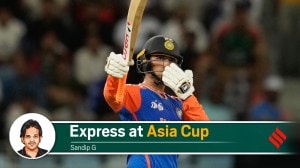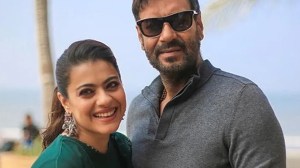Parties agree to disagree with EC rules
United by their fear of new powers assumed by the Election Commission to screen candidates, political parties across the ideological spectru...

United by their fear of new powers assumed by the Election Commission to screen candidates, political parties across the ideological spectrum decided today to counter a Supreme Court judgment with legislation in Parliament.
The decision to bring the Bill in the monsoon session was taken at an all party-meeting. It was called originally to discuss the EC’s proposal of amending statutory rules and the format of nomination papers to give effect to the Supreme Court judgment of May 2 mandating candidates to disclose their criminal antecedents, if any, as well as financial and educational background.
|
POLL PANEL PROPOSES, ALL-PARTY MEET DISPOSES |
| Advani and Jana Krishnamurthi at an all-party meeting on poll reforms. Anil Sharma |
| • EC: Candidates have to disclose all criminal cases Political parties: Exemption from disclosing cases booked for political activities • All candidates have to disclose their assets Only winning candidates should be required to do so, that too to the presiding officer of the House to which they are elected • Compulsory disclosure of educational qualifications Not at all • Returning officers empowered to reject the nominations of those who do not make the stipulated disclosures or give false or incomplete information They can have no power to check whether the information is false or incomplete |
But since the meeting was held after the July 1 deadline set by the Supreme Court, its agenda shifted to the EC order issued on June 28 prescribing a fresh affidavit for candidates and, what is even more radical, empowering returning officers to reject the nominations of those who do not make the required disclosures or give false or incomplete information.
This order will remain in force till the proposed Bill is passed by both Houses of Parliament.
At the meeting, presided over by Deputy Prime Minister L K Advani, party representatives took barely three hours to decide that returning officers should be divested of these ‘‘wide powers’’ given to them by the EC.
As BJP representative V K Malhotra put it, the participants apprehended that this additional power to returning officers, who are otherwise full-time revenue officers, was liable to be ‘‘politically misused.’’ It was felt that in the one day that returning officers get to screen nominations, it will not be possible for them to check whether the information for all candidates is false or incomplete.
Others agreed with this, too. Said Pranab Mukherjee of the Congress: ‘‘The electoral process should not be disturbed because once it begins even the courts cannot intervene. So many powers are given to the returning officer with only one day for scrutiny. It is not practical.’’
Samajwadi Party MP Ram Gopal Yadav said, ‘‘We are politicians and when we are in opposition, we get into a lot of demonstrations. Invariably in every agitation, some cases are filed. These are not political cases but criminal cases. It is not possible for every active politician to keep track of all the cases. These guidelines can give the opponent an opportunity to play mischief.’’
CPI (M) MP Nilotpal Basu said, ‘‘The EC guidelines will only complicate the matter.’’ So the proposed legislation due to be finalised by this weekend will also address ‘‘the practical difficulties’’ involved in making candidates disclose every criminal case in which they have been charged, discharged, convicted or acquitted.
Parties raised objections to the requirement of candidates having to disclose details of movable and immovable assets at the time of filing nominations.
They were most categorical in rejecting the stipulation of making candidates disclose educational qualifications. After the meeting, Law Minister Jana Krishnamurthy said general view was that affidavit introduced by EC makes filing of nomination papers ‘‘a cumbersome process.’’
The Government, he said, took note of the observations of political parties that the poll process should not be ‘‘complicated by impractical and unnecessary road blocks.’’ But it is claimed that the legislation that is being drafted will seek to achieve this object without violating the Supreme Court judgment. Krishnamurthy said: ‘‘There was no scope for any type of confrontation between Parliament and the Supreme Court because each is Supreme in its own sphere.’’
He pointed out that even the judgment clarified that the EC’s order would operate only till Parliament makes statutory provisions for the disclosures that the candidates need to make. The Government maintains that the proposed legislation diluting the Election Commission will be ‘‘true to the Supreme Court’s object of curbing criminalisation of politics and making the electoral system more transparent.’’
On the requirement of disclosing criminal antecedents, the opinion that has emerged suggests that candidates should be spared the burden of going into cases booked against them for political activities such as dharnas and satyagrahas.
The proposed legislation may depart from SC direction that all candidates should disclose their assets at the time of filing nominations. All party representatives accepted Government’s proposal that only winning candidate should be required to disclose his assets, that too to presiding officer of House to which he is elected.
Asked about the consensus against the requirement of disclosing educational qualifications, Krishnamurthy said the media anyway brings out such information and there is no need to provide for it by law.



- 01
- 02
- 03
- 04
- 05




























